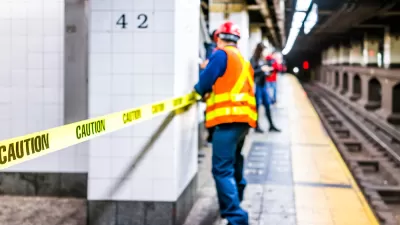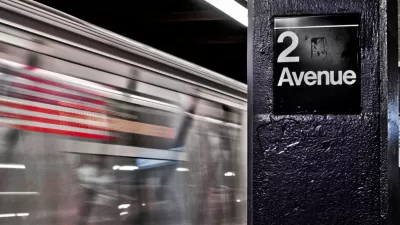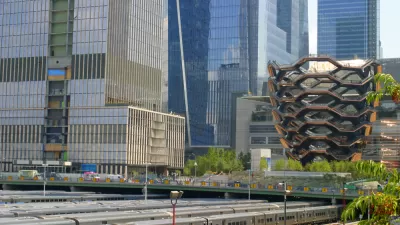There will be a lot of hoopla when the Second Avenue Subway opens in Manhattan on the first day of 2017. Some writers are making sure that one important detail isn't getting lost in the celebration.

"On January 1, the Second Avenue subway extension will open about 100 years after it was first proposed — or at least, a little bit of it will, running from 63rd Street to 96th Street," writes Josh Barro.
According to Barro, the critical component of the story about America's newest large infrastructure project is the cost: at $4.45 billion for two miles, the project is "the world's most expensive subway ever built."
"The bad news is we have been overpaying for our underground infrastructure for stupid reasons," writes Barro. "The good news is we can avoid overpaying in the future with smarter, more strategic choices."
The article goes into a feature-length detail to back those claims, citing the World Trade Center Transportation Hub, opened earlier this year at the cost of $4 billion as another prominent example of the same set of problems. With both these examples in mind, argues Barro, "[t]he main thing that seems to set apart American transit projects is engineering choices — especially choices to build bigger stations than necessary, with more complicated designs than necessary, deeper underground than is necessary."
Vincent Barone provides a similar critique in a separate article released before the subway's opening. Baron's coverage explains the viewpoints of transportation experts who "believe that the comparatively high price of subway construction in New York City could, in the short term, hinder further necessary expansion needed to support its growth."
FULL STORY: New York's incredibly expensive new subway explains why we can't have nice things

Alabama: Trump Terminates Settlements for Black Communities Harmed By Raw Sewage
Trump deemed the landmark civil rights agreement “illegal DEI and environmental justice policy.”

Study: Maui’s Plan to Convert Vacation Rentals to Long-Term Housing Could Cause Nearly $1 Billion Economic Loss
The plan would reduce visitor accommodation by 25% resulting in 1,900 jobs lost.

Planetizen Federal Action Tracker
A weekly monitor of how Trump’s orders and actions are impacting planners and planning in America.

Waymo Gets Permission to Map SF’s Market Street
If allowed to operate on the traffic-restricted street, Waymo’s autonomous taxis would have a leg up over ride-hailing competitors — and counter the city’s efforts to grow bike and pedestrian on the thoroughfare.

Parklet Symposium Highlights the Success of Shared Spaces
Parklets got a boost during the Covid-19 pandemic, when the concept was translated to outdoor dining programs that offered restaurants a lifeline during the shutdown.

Federal Homelessness Agency Places Entire Staff on Leave
The U.S. Interagency Council on Homelessness is the only federal agency dedicated to preventing and ending homelessness.
Urban Design for Planners 1: Software Tools
This six-course series explores essential urban design concepts using open source software and equips planners with the tools they need to participate fully in the urban design process.
Planning for Universal Design
Learn the tools for implementing Universal Design in planning regulations.
Caltrans
Smith Gee Studio
Institute for Housing and Urban Development Studies (IHS)
City of Grandview
Harvard GSD Executive Education
Toledo-Lucas County Plan Commissions
Salt Lake City
NYU Wagner Graduate School of Public Service





























